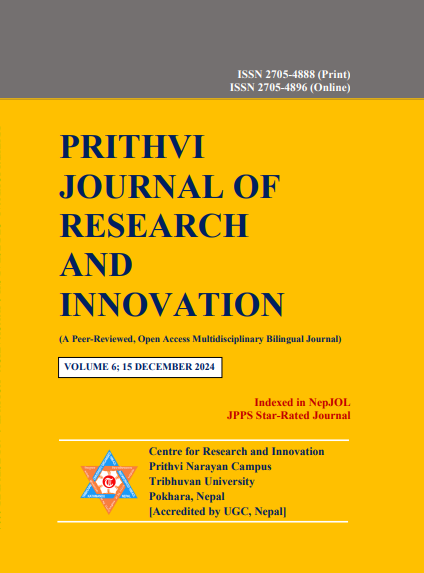The Economic Potential of Son Preference among Rural Women in Nepal: Evidence from Modi Rural Municipality, Parbat, Nepal
DOI:
https://doi.org/10.3126/pjri.v6i1.72858Keywords:
Economic potential, financial support, gender inequality, sex imbalance, son preferenceAbstract
This paper analyzes the economic significance of son preference among rural women in Modi Rural Municipality, Parbat, Nepal. In rural communities, sons are often viewed as essential for improving family wealth and ensuring economic stability. The sons are seen as the primary contributors to household income, inheritance, and old age security. This study aims to analyze the economic significance of son preference among rural women in the study area. This quantitative study has used analytical and descriptive research designs to explore the economic significance of son preference among rural women. Data were collected using a structured questionnaire from a randomly selected sample of 139 married women in the age group of 21 to 40 years and analyzed through frequency distribution, mean and standard deviation. The study focused on the roles that sons play in supporting parents, contributing to family income, and maintaining the family legacy. The findings revealed that 72.6% of participants had one son, with a child sex ratio of 116. Statistical analysis showed a mean perception score of 3.8374 (SD = 0.2478), indicating higher agreement with the economic advantages of having sons. Furthermore, the preference for sons was evident, especially when respondents were asked to choose between a son and a daughter as the only child. The results underscore a strong association between the perceived economic value of sons and the continuation of son preference. This paper suggests that economic support, inheritance and old age security are the main economic drivers of son preference among rural women in Nepal. The deep economic importance of son preference among rural women in Nepal is causing sex imbalance in the society and obstructing the journey toward gender equality.
Downloads
Downloads
Published
How to Cite
Issue
Section
License

This work is licensed under a Creative Commons Attribution-NonCommercial 4.0 International License.
© Centre for Research and Innovation (CRI), Prithvi Narayan Campus (TU)

